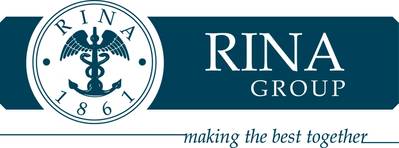RINA and IB Partner for Ship Management Software Suite
International classification society RINA Group has partnered with Italian software house IB to distribute a software suite aimed at improving ship and fleet operation across the board.
The InfoSHIP suite is made up of a number of modules which together can be used to improve efficiency across any type of ship or fleet management.
Paolo Moretti, General Manager, Business Line Marine, RINA Group, says, “Efficient ship and fleet management depends on managing information in the right way. IB has developed this growing suite of software modules specifically for the marine market, but drawing on expertise in other sectors. Owners can choose the specific modules needed to improve their day-to-day management needs.”
Grouped under the InfoSHIP suite are MP Maintenance & Purchase, MS Ship’s Certificates and Event Management System, DD Dry Dock Process Management, DSF Decision Support Framework, TH Technical Hotel Management, GFR Guarantee Failure Reports, AI Audit & Inspections Management and CM Compliance Management.
Maurizio Ricci, IB Chairman and CEO, says, “For thirty years IB has been dedicated to the development and implementation of computerised maintenance management systems. We are the Italian market leaders in this area and we can use the knowledge from one business sector to improve the business model in other sectors. InfoSHIP provides specific solutions and tools to satisfy the widest needs of fleet technical management. The suite of programs is intended to provide a secure, interactive and global fleet management platform.”
InfoSHIP satisfies the main requirements of shipowners for a management system. It is complete, covering all processes in detail, it is flexible (the interface can be modified to suit the user ranks and functions), it is interactive, it is a distributed daily work tool, and it allows real-time operations and performance and continuous monitoring of critical issues.
InfoSHIP MP is the core module, dedicated to technical management including maintenance activity, purchasing cycle and cost control. InfoSHIP MS follows compliance with safety, security and environmental duties and provides an event reporting system, as well as handling ship certificates and documents. InfoSHIP® DD monitors the technical, managerial and cost issues of drydocking and InfoSHIP® DSF provides operational reporting and data analysis. The TH module tracks and manages procurement and maintenance processes for cruise ships’ hotel departments, while the GFR module adds claims management. The AI module supports tracking and managing inspections, audits and vettings of all kinds and, finally, the CM module is designed for managing compliance processes, being also helpful for change management purposes.
The latest addition to RINA and IB’s offering is InfoSHIP EGO, a system for Energy Governance whose goal is to strongly reduce GHG emissions and fuel consumption by up to 10 per cent for ships in operation. EGO covers voyage and fuel management processes, trim optimisation, propulsion efficiency and energy management, together with a powerful reporting and analysis tool for decision-makers.
The software features online operational support and SEEMP compliance, and helps optimise maintenance. InfoSHIP EGO is a fuel-consumption monitoring system based on a step-by-step approach. The basic approach can be limited to fuel oil consumption monitoring but it can be integrated with various options such as trim optimisation, monitoring of propulsion power and monitoring of electric load. The implementation levels depend on the type of ship, the target savings and accuracy required. The system is completed by InfoSHIP ELB Electronic Logbook, which provides paperless management of all ship reporting issues, including Marpol annexes, engine and deck logbooks and all ship formalities (IMO FAL Form).
“The investment in this software will depend on the type of vessel, but it is highly scalable and therefore covers completely different needs depending on the type of ship, from tanker and cargo vessels up to large cruise ships,” explains Moretti. “It can be tuned to the needs of each owner. Training is needed for staff on board and ashore, but it will deliver a payback. In our experience we have seen energy saving from non-propulsive consumption on cruise ships of between 5 and 8 per cent. Savings of 1 to 3 per cent are available through trim optimisation, and 2 to 4 per cent through increased propulsion efficiency. The crew on board can use the system information to optimise consumption at any time, while ashore dashboards can be used to improve fleet performance.”














